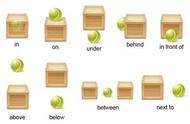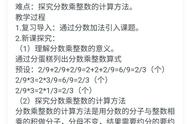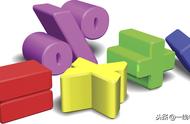1. at, in, on
at 一般指小地方;in 一般指大地方或某个范围之内;on 往往表示“在某个物体的表面”。例:
He arrived in Shanghai yesterday. 他昨天到上海。
They arrived at a small village before dark. 他们在天黑前到达一个小村庄。
There is a big hole in the wall. 墙上有个大洞。
The teacher hung a picture on the wall. 老师把一幅画挂在墙上。
2. over, above, on
over, on 和 above 都可表示“在……上面”,但具体含义不同。Over 表示位置高于某物,在某物的正上方,其反义词是under。above 也表示位置高于某物,但不一定在正上方,其反义词是below。On 指两个物体表面接触,一个在另一的上面。例如:
There is a bridge over the river. 河上有一座桥。
We flew above the clouds. 我们飞越云层。
They put some flowers on the teacher's desk. 他们把一些花放在讲桌上。
3. across, through
across 和 through 均可表示“从这一边到另一边”,但用法不同。Across 的含义与 on 有关,表示动作在某一物体的表面进行。Through 的含义与 in 有关,表示动作是在三维空间进行。例如:
The dog ran across the grass. 狗跑过草地。
The boy swam across the river. 那男孩游过河。
They walked through the forest. 他们穿过森林。
I pushed through the crowds. 我挤过人群。
4. in front of, in the front of
in front of 表示“在某人或某物的前面”,在某个范围以外;in the front of 表示“在……的前部”,在某个范围以内。例如:
There are some tall trees in front of the building. 大楼前有一些高大的树。
The teacher is sitting in the front of the classroom. 老师坐在教室前面。
5. among, Between
两者都含有“在……中间”的意思。 一般说法是:among 用于“三者或三者以上之间”,而 between 则用于“两者之间”。例如:
I bought three hundred eggs and there was not a single bad one among them. 我买了三百鸡蛋,里面一个坏的也没有。
What's the difference between Asian elephants and African elephants? 亚洲象与非洲象有什么不同?
不过这个定义过于简单。Oxford上对于两者的解释是:"Among" is used of people or things considered as a group. "Between" is used of people or things, either two in number or more than two considered individually.
1) among 除了表示多于两者之间的关系外,更重要是它表达了“在其中”的意思。究竟是多少人或事并不重要,因为他们/它们已经被视为一体。例如:
He stood among the crowd. 他站在人群中。
There is a thief among you. 你们中间有一个是小偷。
She divided the money among her three children. 她把钱分给了她的三个孩子。
2) Between 可用于“三者或三者以上之间”,指每个人或物与别的每个人或物分别发生联系,例如:
Ecuador lies between Columbia, Peru, and the Pacific Ocean. 厄瓜多尔位于哥伦比亚、秘鲁和太平洋之间。
3) Between 在表示“合作、协力”的意义时,其宾语不受所涉及到的个体数目的限制。例如:
The three children saved over a hundred pounds between them. 三个孩子一共赚了一百多英镑。
The three men tried to lift the box between them. 三个人一齐用力想把箱子抬起来。
Among 也有相同的用法:
They finished the work among themselves. 他们共同完成了这项工作。
















